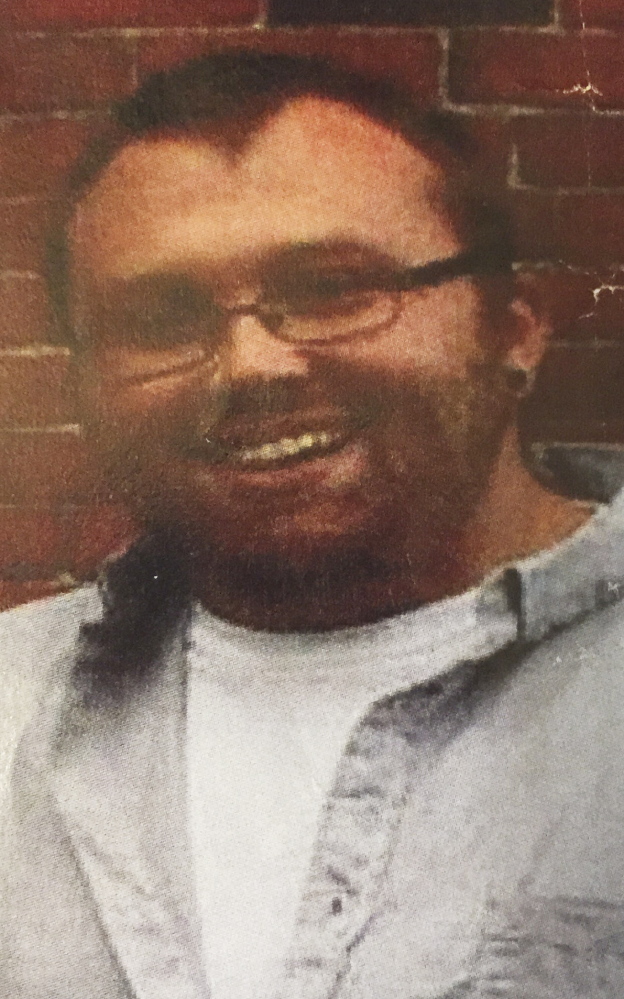AUGUSTA — Craig McPherson was driving to his morning shift at the Hannaford supermarket in North Windham last year when a car suddenly crossed the centerline of Route 302 and crashed into him head-on.
The 26-year-old Portland man later died from head injuries at Maine Medical Center. The driver of the other car had just finished an overnight shift as an X-ray technician at a hospital and told witnesses she might have fallen asleep.
Now, a legislator from Glenburn has proposed a law that would make driving while fatigued a crime on the order of driving drunk.
Specifically, Republican Rep. Stacey Guerin’s bill would outlaw driving without having slept during the previous 24 hours. Guerin testified before the Legislature’s Criminal Justice and Public Safety Committee on Monday, saying that roughly 1,550 people are killed each year nationally in crashes that police blame on driver fatigue.
“There is currently no criminal charge for even extreme fatigued driving,” Guerin said. She said a study in Australia found that driving after not having slept for 24 hours is equivalent to having a blood alcohol content of 0.10 percent, more than the legal limit for drinking.
Guerin also cited statistics from the National Sleep Foundation that said half of American adults report having driven while drowsy and 20 percent report having fallen asleep at the wheel in the previous year.
The legislation would make driving while fatigued a misdemeanor, but that could be elevated to a felony if serious injury or death results. Guerin said the bill might require exemptions for emergency workers and plow drivers who must sometimes work more than 24 hours at a time.
Guerin proposed the bill at the request of McPherson’s family.
Jenny McPherson of Kenduskeag told the committee that it was fatigued driving that killed her brother Craig McPherson. She said he was a well-liked employee who contributed to charities such as the United Way and groups that fight homelessness.
Her brother was headed to work about 8:30 a.m. on March 9, 2014, when the car he was following suddenly swerved out of its lane. In its place was an oncoming Subaru Forester that crashed into him head-on, she said. Despite wearing his seat belt and the airbags deploying in his Dodge Caliber, he suffered severe head injuries and later died.
The other driver, Brittney Herson, 26, of Sanford, had just worked an overnight shift as an X-ray technician at an area hospital and was returning home Sunday morning when the crash happened.
Jenny McPherson said her family met in the past month with Herson and her family. They learned that Herson had been up all day Saturday and then worked through Saturday night and was coming home Sunday when she fell asleep at the wheel.
The meeting was healing for both families, Jenny McPherson said.
“She didn’t know the danger of not sleeping before her shift,” she said of Herson. “She would have definitely preferred the punishment of this law over the guilt she’s going to feel for the rest of her life.”
Jenny McPherson said the law would not just be for enforcement, but would also encourage employers to be aware when they are asking their employees to work long hours that they might need rest before driving.
Craig McPherson’s mother, Kelley Gallant, lives in Texas and could not attend Monday’s hearing. She submitted written testimony.
“I know this will not bring my son back, but will honor him and help save lives,” she said.
Robert O’Connell Jr., director of legal affairs for the Bureau of Motor Vehicles, spoke against the bill, saying driving while fatigued is currently covered by existing laws prohibiting driving to endanger, and the civil violation of causing the death of another person while committing a traffic infraction. The secretary of state already can suspend a driver’s license if a person is a reckless or negligent driver.
Lt. Brian Scott, commander of the Maine State Police traffic safety unit, said he was not for or against the bill. He noted that 30 fatalities in the past five years were attributed by investigating officers to fatigue.
Rep. Justin Chenette, D-Saco, said if police can determine 30 people died from fatigued driving crashes in the past five years, there must be some way to measure fatigue.
Scott said police investigate the circumstances of a crash – including what the person did during the 48 hours prior to a fatal crash – but proving in court that the driver had not slept in 24 hours or was extremely fatigued would be challenging.
Officers are trained to detect drivers impaired by drugs or alcohol but an officer can’t be trained to know when someone last slept.
“My guess is they’ll probably get a second wind when a police officer just pulled them over for not driving too well,” Scott said.
The number of crashes caused by fatigue might well appear to go down if it was illegal, he said. That was the case when distracted driving became illegal. People stopped admitting to being distracted as they had before it could lead to penalties.
Guerin said later that just because it can be hard to prove someone was texting at the time of a crash doesn’t mean it’s poor policy to make it illegal. Similarly, making fatigued driving illegal will convince some people they should take steps to avoid it.
“If it cuts back on the number of accidents, then great,” she said.
Several states have drowsy driver awareness efforts. New Jersey has a law similar to that proposed in Maine – treating fatigued driving the same as drunken driving – and Arkansas makes it a crime to be driving while fatigued if someone dies as a result.
The committee has scheduled a work session on the bill for 1 p.m. Wednesday.
Send questions/comments to the editors.




Success. Please wait for the page to reload. If the page does not reload within 5 seconds, please refresh the page.
Enter your email and password to access comments.
Hi, to comment on stories you must . This profile is in addition to your subscription and website login.
Already have a commenting profile? .
Invalid username/password.
Please check your email to confirm and complete your registration.
Only subscribers are eligible to post comments. Please subscribe or login first for digital access. Here’s why.
Use the form below to reset your password. When you've submitted your account email, we will send an email with a reset code.